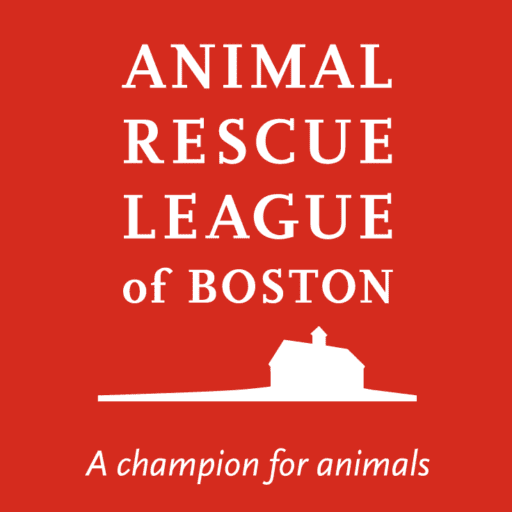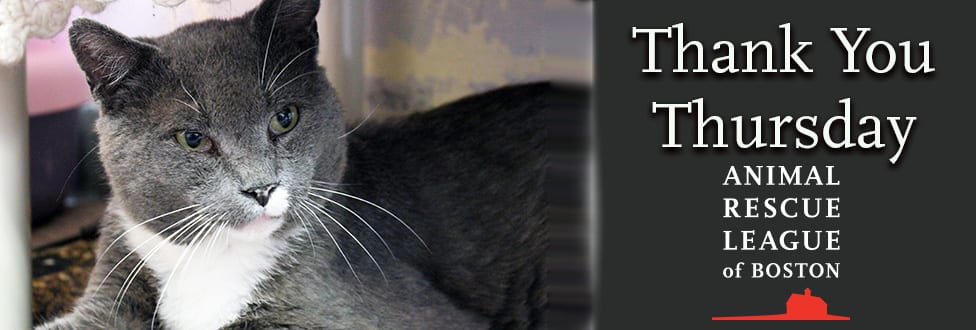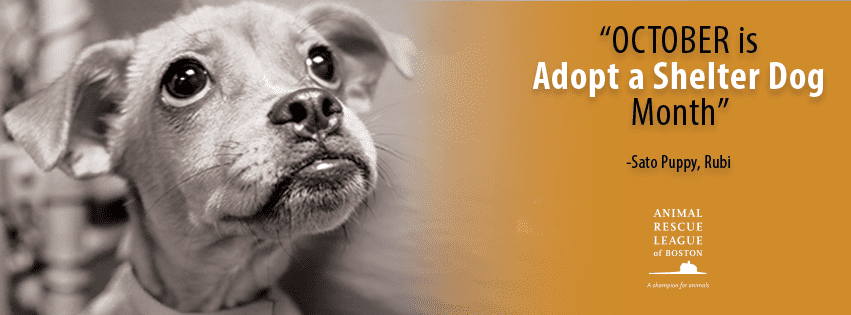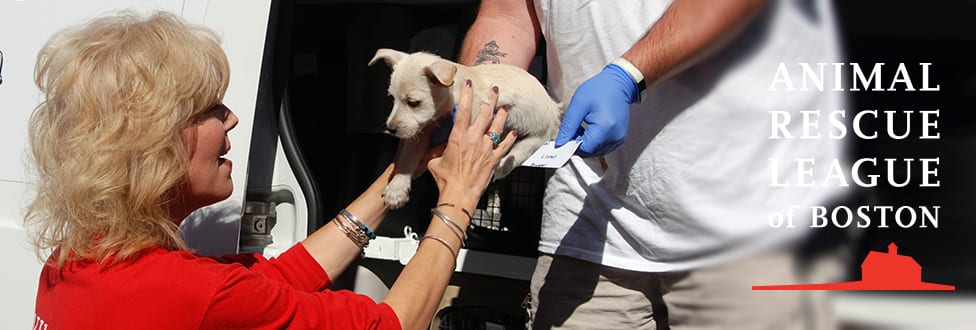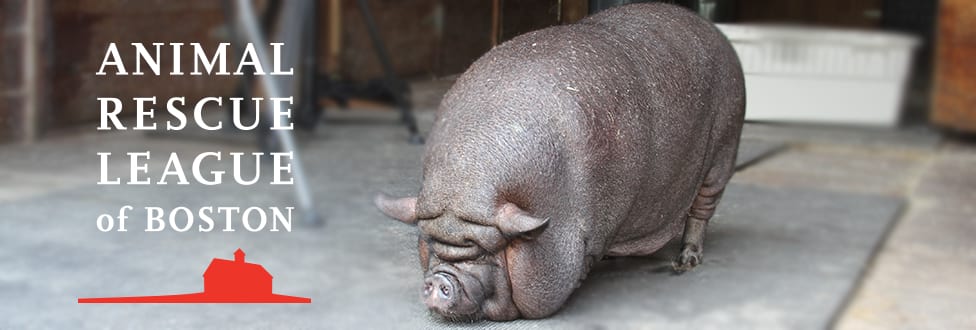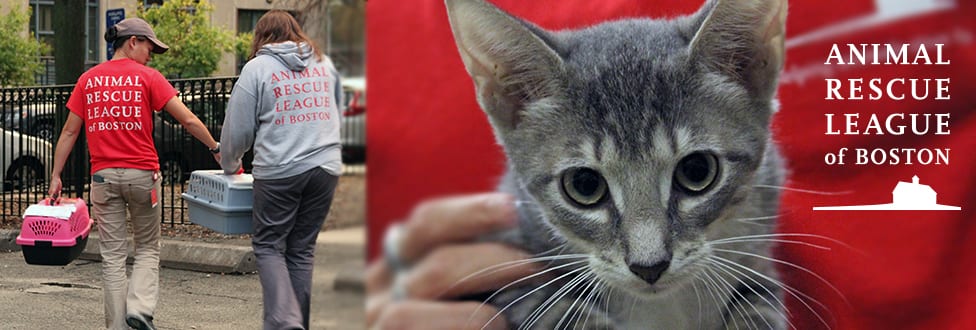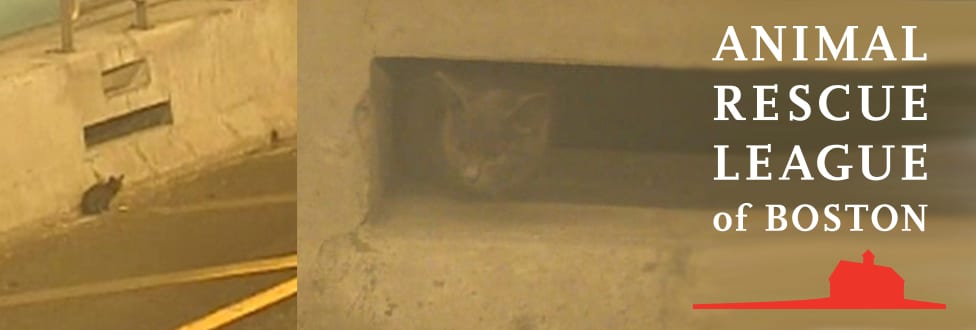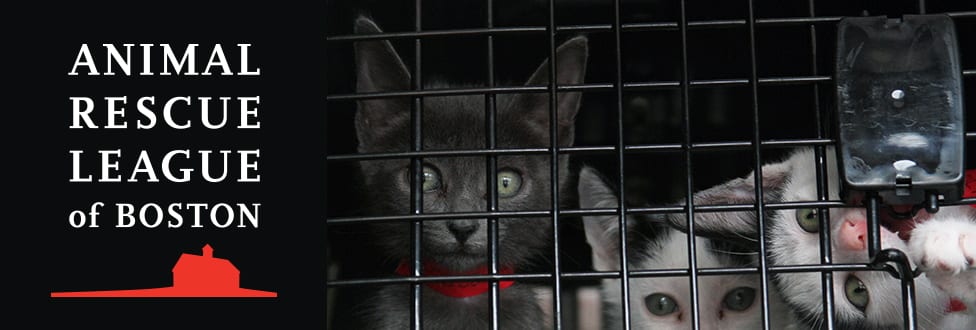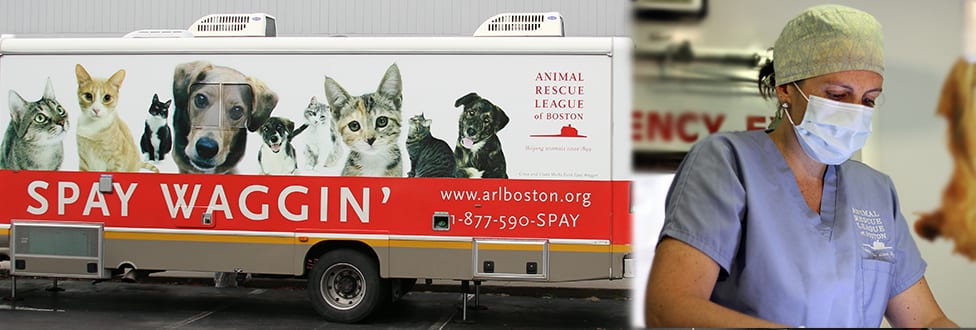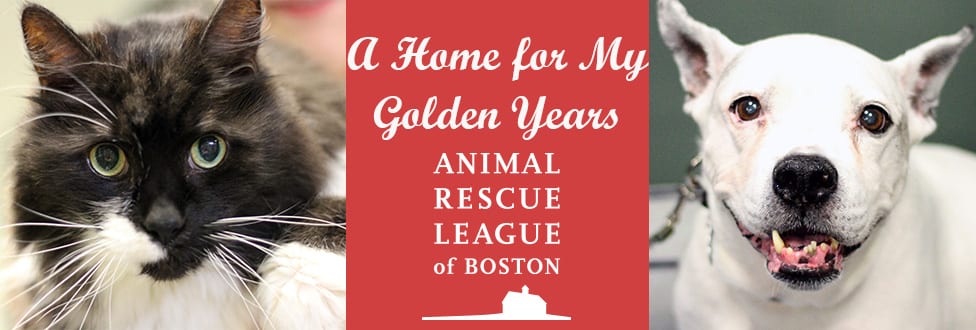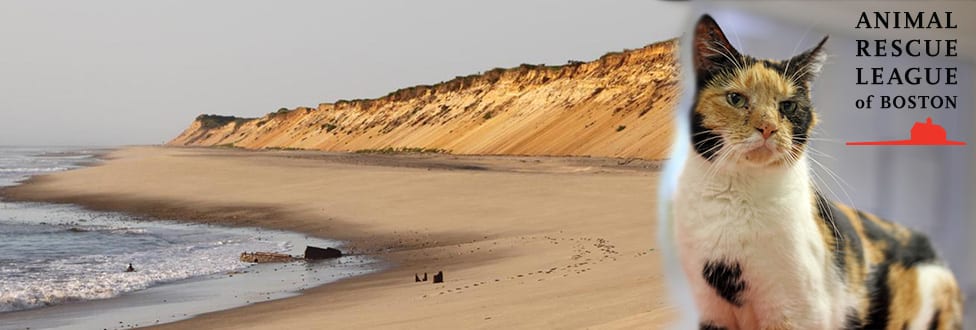Thank You Thursday: From Stray, to Surgery, to Adopted!
ARL’s Cape Cod Branch Gets Helping Hand from Veterinary Partner
In late August, “Gus” was transferred to the Animal Rescue League of Boston’s (ARL) Brewster Animal Care and Adoption Center from Friends of Carver Animals. It’s estimated that Gus had been dumped into a feral colony about 10 years ago, and when he was recently trapped and neutered, because he was so friendly, it was decided he should be placed into a loving home, not returned to the colony.
When examined by ARL veterinary staff, it was noted that Gus had a cleft palate that was likely the result of an old injury rather than congenital, as well as a fractured upper canine tooth. A cleft palate for a cat can cause problems eating and swallowing, as well as respiratory complications.
Needing surgery, ARL teamed with Eastham Veterinary Hospital, with Dr. John Kelly performing the cleft palate repair, while extracting five teeth as well. Gus was returned to ARL to recover and was fed canned cat food diluted with water, and treated with antibiotics to prevent infection. Gus recovered quickly, and has since been adopted!
In one month, Gus went from a stray, to a rescue, to a patient, and finally to adopted! ARL wants to thank Eastham Veterinary Hospital for its partnership, and for giving Gus the chance to find a forever home.
